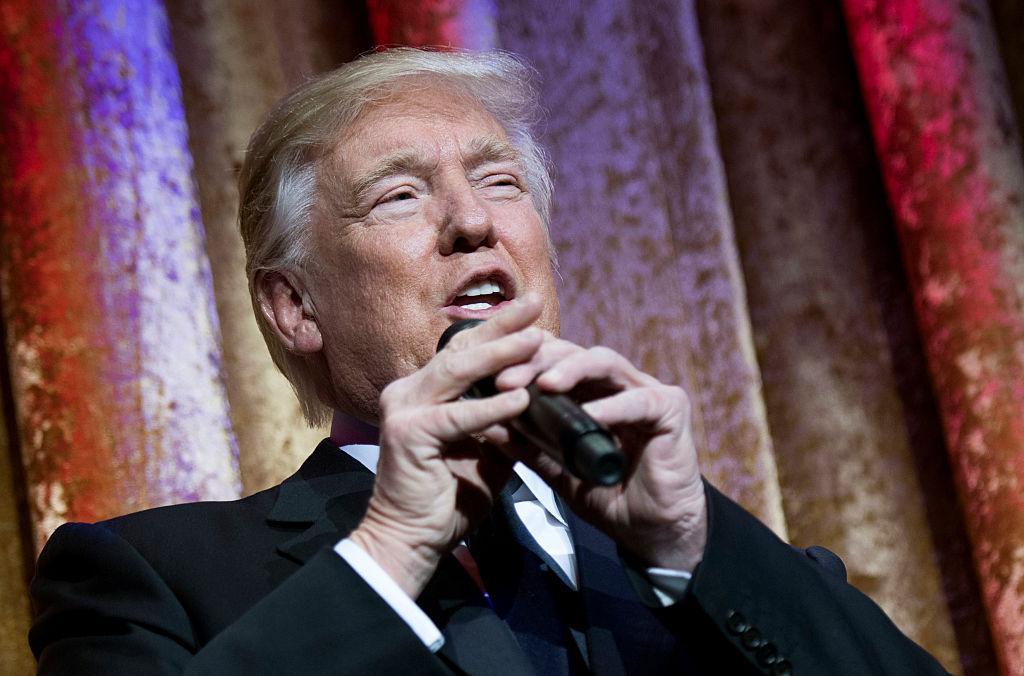This is the first thing Donald Trump will do in power – and it has the potential to change America entirely
The US has a bad tax system: two-thirds of US companies pay no corporation tax at all. How exactly Trump is going to bring back all the money which is hidden overseas will be his first concern. And who pays what in America – especially the ‘middle class’ – will be changed along with it


Your support helps us to tell the story
From reproductive rights to climate change to Big Tech, The Independent is on the ground when the story is developing. Whether it's investigating the financials of Elon Musk's pro-Trump PAC or producing our latest documentary, 'The A Word', which shines a light on the American women fighting for reproductive rights, we know how important it is to parse out the facts from the messaging.
At such a critical moment in US history, we need reporters on the ground. Your donation allows us to keep sending journalists to speak to both sides of the story.
The Independent is trusted by Americans across the entire political spectrum. And unlike many other quality news outlets, we choose not to lock Americans out of our reporting and analysis with paywalls. We believe quality journalism should be available to everyone, paid for by those who can afford it.
Your support makes all the difference.Presidents propose; Congress disposes. And so it will be with Donald Trump’s tax plans. He wants to cut tax rates both for individuals and for companies. Republicans in Congress – and remember they control both the House and the Senate – also want to cut taxes, so there will quite swiftly be changes in the US tax system. But still to play for will be the detail, and that game has yet to begin.
The background is that the US has a bad tax system. Yes, I know most people hate tax, but the point about the US is that it has high nominal tax rates combined with lots of exemptions. So it leads to huge distortions, while collecting a relatively low proportion of GDP in tax.
Personal tax first. At present there are seven bands of Federal tax, with a top rate of just under 40 per cent. But as well as that are state income taxes, of which the highest is California at over 13 per cent, though you have to have an annual income of more than $1m to get there.
Seven states including Texas and Florida have no income tax at all, and while they do charge property and other taxes, this leads a lot of rich Americans to more there on retirement.
But there are exemptions, which include payment into pensions, donations to charitable foundations, deductions for medical expenses, and so on. There is even a deduction for gambling losses, though it is better not to lose the money in the first place.
Donald Trump’s proposal is that there should be three rates of Federal income tax: 10 per cent, 20 per cent and 25 per cent. The House plan, led by speaker Paul Ryan, is also for three rates – 12, 25 and 33 per cent – so there is obviously a gap to close.
The other main difference is exemptions, with the House plan ending nearly all of them, except mortgage interest and charitable donations. Donald Trump, by contrast, wants to keep them – except, maybe he won’t. His nominee for Treasury Secretary, Steve Mnuchin, says: “There will be no absolute tax cut for the upper class. There will be a big tax cut for the middle class, but any tax cuts we have for the upper class will be offset by less deductions.”
Now to corporate taxation. The rate there is 35 per cent, the highest in the developed world, and some states levy tax on top of that too. But as with personal taxation there are huge exemptions, of which the most notable is that profits earned abroad can be parked abroad free of tax. This has led to the “double Irish” and other devices, whereby multinational companies can avoid tax altogether on a huge chunk of their revenues.
Two-thirds of US companies pay no corporation tax at all. Donald Trump proposes cutting the rate to 15 per cent, the second lowest after Ireland’s 12.5 per cent rate. The Republicans in the House have proposed a 20 per cent rate, the same as the UK at the moment.
But the key, as with personal taxation, will be what happens to exemptions. The House plan would stop interest exemptions, which have led to the device where owners take cash out of a business, load it up with debt and then use the interest on the debt to reduce profits. This was not why the policy was created: it was to increase investment by cutting the cost of borrowing. But it has had this perverse effect, leading sometimes to quite disgraceful business practice.
As for all that money stashed abroad, we’ll have to wait and see quite how the new administration plans to get it back. Expect a mixture of carrot and stick – bring back the money in some form of amnesty, paying a low rate of tax, or be clobbered later on.
The House Republicans have promised major tax changes in the first 100 days of the new administration. Tax reform is complicated but because there is such widespread frustration with the present system that a lot of preparation work has been done on ways to reform it.
But the President and Congress have to hammer out a deal that satisfies both. They also have to create something that increases incentives without too serious a loss of revenue. Whatever they do will be savaged by the Democrats and economists favourable to the Democrats. But do expect something big.
Join our commenting forum
Join thought-provoking conversations, follow other Independent readers and see their replies
Comments